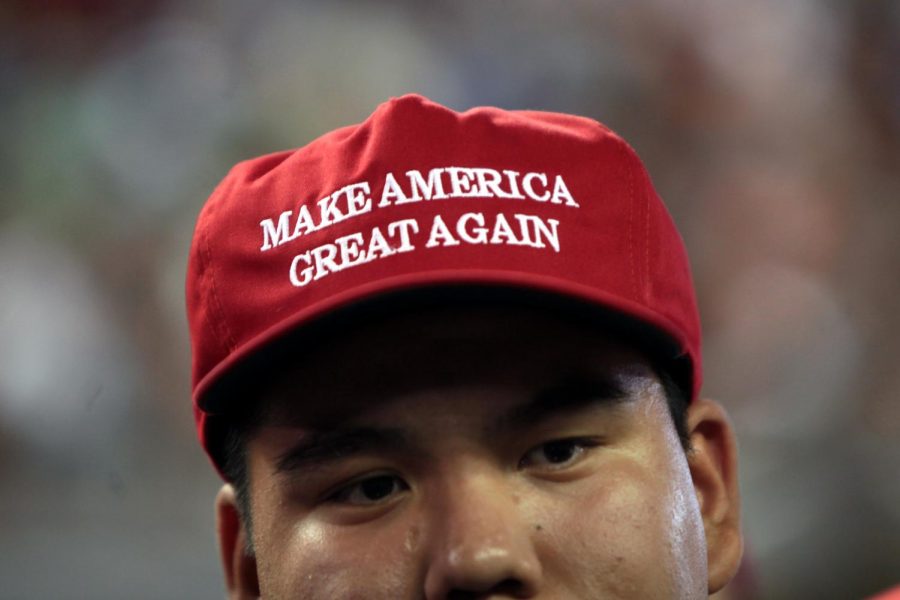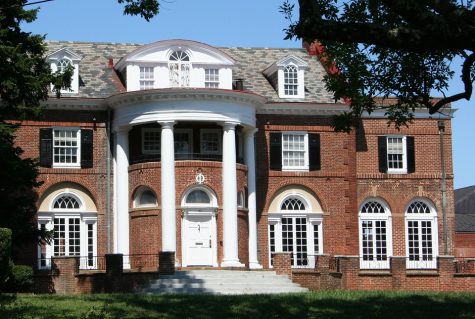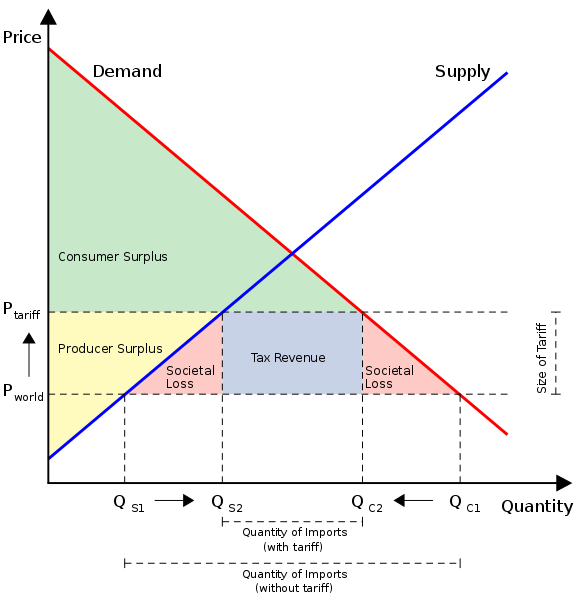Life, liberty and the pursuit of happiness: under these three ideals, the great “American experiment” was founded, but as with any large-scale experiment, there is always room for error.
Earlier this week, an article was published in the Spartan Shield’s The Elephant in the Room column which attempted to advance the argument of why American exceptionalism is “not a misguided claim nor is it grossly patriotic” but rather “a simple recognition of history and values.”
There is no doubt that what the Founding Fathers attempted to create, and somewhat successfully created, was unique to the world in its time. Democracy has never been a common form of government in history, and its lifespan was often short when it did exist. Based on Greek democracy and the Social Contract theory, American democracy sparked a new set of ideals that resonated with the world: it was meant to create a nation of dreamers who worked to achieve higher goals and loftier visions than before.
American exceptionalism has its place in our national consciousness. Heralding scientific progress and championing civil rights in bold strokes, America has a lot to offer. Even in an increasingly turbulent political landscape with filled with uncertainty, it is impossible to deny that yes, Americans do possess a number of rights and privileges to find exceptional.
But, now, to call America exceptional in the full extent of the phrase “American exceptionalism” is akin to looking at American and global history through rose-tinted lenses. Maybe even rose-tinted horse blinders. It requires a sense of historical and political detachment. As with any subject, ahistorical examinations of American exceptionalism are simply not possible.
American exceptionalism, as defined by New World Encyclopedia, is “the belief that the United States differs qualitatively from other developed nations because of its national credo, historical evolution, or distinctive political and religious institutions.” Despite the claim made in the article that American exceptionalism is not “grossly patriotic,” the definition inherently presupposes ardent patriotism.
Exceptionalism is not a solely American concept; it is just a manifestation of the same patriotism seen throughout history. As Barack Obama said in a 2009 press conference, “I believe in American exceptionalism, just as I suspect that the Brits believe in British exceptionalism and the Greeks believe in Greek exceptionalism.”
When referring to countries outside our own, a similar mentality to American exceptionalism is often given a far different name: nationalism. Nationalism is similarly defined by Merriam-Webster as “exalting one nation above all others and placing primary emphasis on promotion of its culture and interests.” What is there, then, to divide exceptionalism from nationalism, which we as a democratic state claim to despise so ardently?
American exceptionalism is neither a new concept nor one that has been created in a vacuum. The earliest examples of this mentality can be traced back to colonial Governor John Winthrop and his “city upon a hill,” referring to the Massachusetts Bay Colony. The city became a symbol for the nation, a shining example of democracy and independence to which the world was meant to look in times of struggle.
Overused and euphemistic at best, American exceptionalism is an empty phrase, but with it comes a legacy of silence and oppression that mars its modern usage.
Winthrop’s famous saying spurs a simple question: what can be exceptional about a city upon a hill if that city is surrounded by the remains of burnt and pillaged Native villages? Inside the hearts of the American exceptionals are those who openly murdered the Pequot Indian population. American exceptionalism has always been tainted by the death of countless massacred peoples, bloodied by mass genocides and ethnic cleansings.
There is little to find exceptional in a country based on inequalities. Let us not forget that the Founding Fathers were not looking for true equality. They were in search of relative equality, freedom within boundaries because when “all men were created equal,” there lay a hidden addendum: all men were to receive equality by opportunity, not that all men were equal by condition.
Yes, the addition of any mention of equality — no matter how seemingly simplistic — was a monumental and historic step in the right direction for world politics, but its limitations must be kept in mind when waving around American exceptionalism theory and citing the Founding Fathers as the pinnacle of the American dream.
Militarism continues to stain the nation crimson in the wake of its excellence. In 1899, Secretary of War Elihu Root said, “The American soldier is different from all other soldiers of all other countries since the world began. He is the advance guard of liberty and justice, of law and order, and of peace and happiness.” This is the quintessential summation of American exceptionalism as the American soldier in question had just moved into the Philippines in order to silence their attempts to gain independence and massacre thousands along the way.
American exceptionalism can be seen in our military engagements, in our territorial conquests and in our social policies. As historian Howard Zinn commented in an essay, American exceptionalism was naturally followed by “the idea that American expansion is divinely ordained.” With the power of God behind the country, the country was immune to any ramifications of our actions. America, under the idea of exceptionalism, is inherently validated in all of its actions because of the belief that because we are different because we are politically, morally and socially superior to the rest of the world so we have the right to militarily enforce our way.
After all, we are the ones carrying the “big stick” of moral righteousness.
Even when there was no overt divine mandate following our actions, American exceptionalism has acted in the same way to support our actions. It was later secularly vindicated through the World Wars as victory only supported our national need to police the world.
“Almost immediately after World War II the United States penetrated the oil regions of the Middle East by special arrangement with Saudi Arabia,” Zinn wrote in a 2005 essay. “It established military bases in Japan, Korea, the Philippines, and a number of Pacific islands. In the next decades it orchestrated right-wing coups in Iran, Guatemala, and Chile, and gave military aid to various dictatorships in the Caribbean. In an attempt to establish a foothold in Southeast Asia it invaded Vietnam and bombed Laos and Cambodia.”
American exceptionalism always comes at the cost of independence for other countries; in upholding our own democratic ideals, we are quick to silence others. Meddling with foreign affairs, supporting and installing dictatorships, manipulating political climes to suit our oil needs: these are all symptoms of our national ailment.
We seek to better the world through our police officer outlook on foreign affairs. Our exceptionalism wishes to bring democracy to those we see as living inferior lives. But, more often than not, exceptionalism is used as the basis for modern-day imperialism and showmanship.
America cannot be exceptional until we live up to the promises we have made. As Smith said in his article, conservatives are calling for a return to a “great America,” but I can only ask where it ever was. A truly great America should be defined by more than just “a Friday night high school football game, a state fair, or city council meeting.” Smith claims that “any country could do big things,” but I would argue the exact opposite.
Conservatives want America to return to its former greatness, but instead, I firmly believe that it is now that we are surrounded by so much trauma and strife that we must strive forward to reach new heights. We must finally work to create an America that is truly worthy of our devotion and patriotism. A great America is not and has never been in the past — it is in the future.














Cole Dorman • Nov 30, 2017 at 10:31 am
Fantastic article. I completely agree, I think American Exceptionalism is blind patriotism and we need to take a step back to evaluate ourselves, dawg.